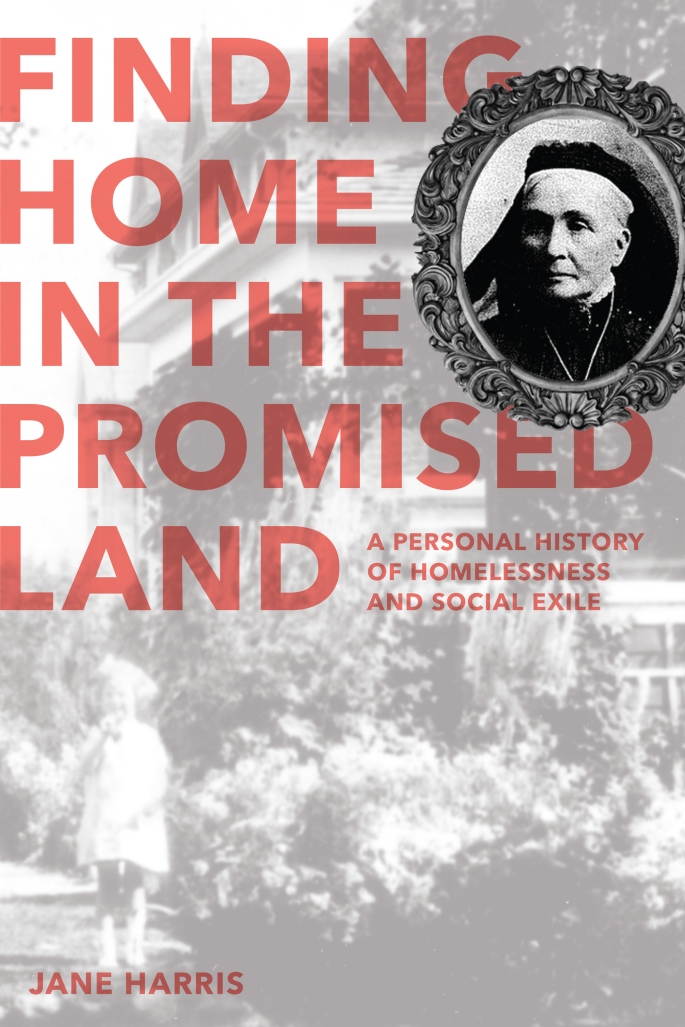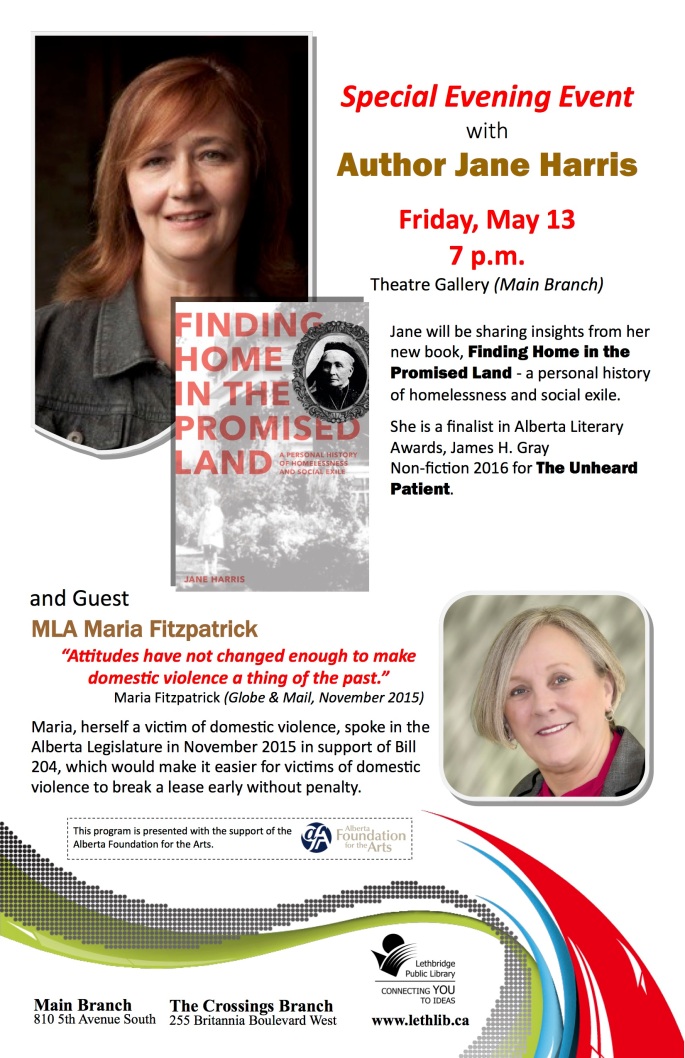I read Finding Home in the Promised Land on the plane today. Bravo! It’s a great weaving of history, memoir and cultural analysis. Thank you for so much food for thought! Barb Howard, Author Western Taxidermy, Notes for Monday,The Dewpoint Show, Whipstock . Calgary, AB, Canada
“Jane’s memoir is more than her own story — she has an important statement to make on the value of a civilized society….Along the way,you will admire her courage and her upbeat style.” Goodreads Review Excerpt, Gordon Tolton, Author, Healy’s West, The Cowboy Cavalry, Prairie Warships, Rocky Mountain Rangers, Coaldale, Alberta, Canada.
Finished reading your book, Jane– a courageous report of the journey from anonymity to triumph. A great deal for me to think about and reconsider. I loved the link between ancestral past and renewed determination. The courage and internal resources you discovered in yourself and the idea to write a book out of such experience is inspiring. There are still stories within the story for the reader to guess and think about further. You and your book deserve deep attention. — Ruth Hart Budd, Lethbridge, Alberta, Canada.
Learning a lot from your book. As well as enjoying it, I really like your blend of history and personal journey. I hope you will not mind my saying that your writing style has matured a good deal, over the years. Denyse O’Leary, Journalist, Author, The Spiritual Brain, Faith@Science, By Design or Chance, Ottawa, Ontario, Canada.
Finding Home in the Promised Land provided authentic insight into poverty and homelessness. The author has woven her own story with the story of her ancestors and the historical context of how the poor have become social exiles in Canada. Jane Harris has done an excellent job researching this book. I hope it will challenge those who read it to reconsider the assumptions we have made in providing solutions to a social issue that shamefully continues in our country. Jan Hardstaff, Edmonton.
I just thought the book was fantastic. Thank you. Jan H., Edmonton, Alberta Canada.
 l soon be available worldwide in e-book format through Signature Editions. Stay tuned for details in next few weeks.
l soon be available worldwide in e-book format through Signature Editions. Stay tuned for details in next few weeks.



